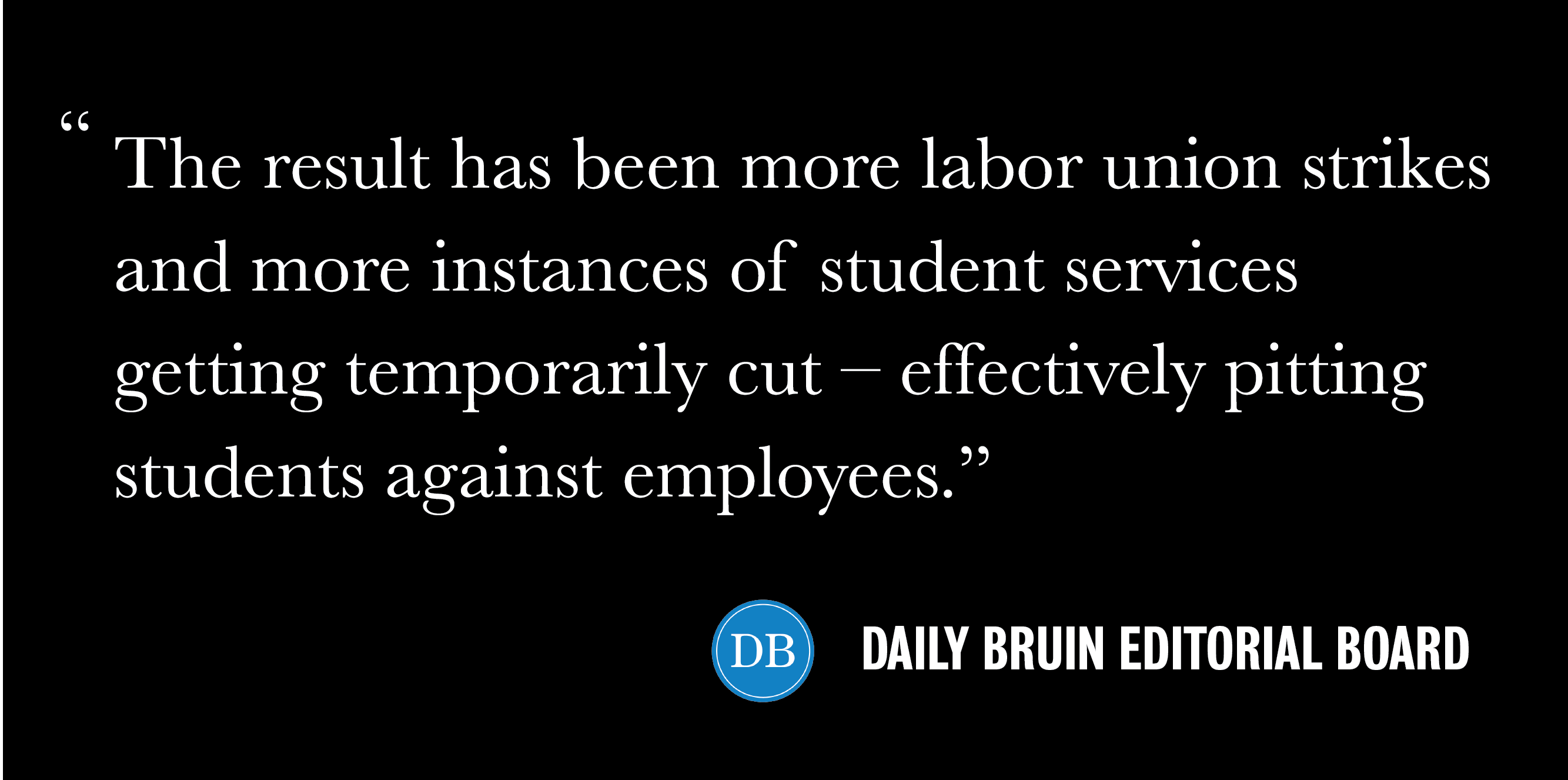Editorial: UC’s refusal to negotiate with union dismisses well-being of workers, students

By Editorial Board
Oct. 28, 2018 10:38 p.m.
Subpar working conditions and perpetual strikes have become a campus norm at the University of California.
The American Federation of State, County and Municipal Employees Local 3299, which represents service workers and patient care technicians, has been in contract negotiations for better wages and benefits with the UC for almost two years now. But every time it’s come to the bargaining table, the UC has lowballed AFSCME Local 3299 with an offer that the union can’t accept.
And so AFSCME Local 3299 has had to resort to the only play they have in the playbook: going on strike.
The most recent strike took place last week and was in protest of the UC’s outsourcing of jobs to private firms that are not held to the same standards as the University – organizations that come with lower wages, fewer benefits and higher risks of wage theft. Laborers went on a similar three-day strike in May, claiming the UC engages in gender-based and racial discrimination in its hiring and wage practices. The union has held several coordinated strikes prior to this year.
It’s apparent the UC has a history of forcing its workers to go on strike in response to mistreatment or failed negotiations. Instead of finding a way to solve this problem and avert future strikes, the UC has been accepting these protests as nuisances.
For the three days dining hall workers were striking, UCLA Dining offered students full-meal coupons from on-campus restaurants in exchange for Hill swipes. UCLA also put notices on Bruin Bus stating university services might be more delayed than usual. Negotiations with AFSCME Local 3299, though, don’t seem to have seen much progress since the announcement and completion of the strikes.
The university had a similar response in May: It was fine offering reduced options at the Hill’s dining halls in response to workers’ strikes, but made little effort to come to a consensus and ensure future short-term measures wouldn’t have to be employed.
The result has been more labor union strikes and more instances of student services getting temporarily cut – effectively pitting students against employees. That tactic seems to be working well for the UC, since student ire has been redirected from administrators to members of the campus community who are themselves shortchanged by the University.
This power dynamic no doubt favors administrators, but it’s done in bad taste. The way to respond to labor strikes is to hear union members’ concerns and present compelling yet realistic offers at the negotiating table. The UC clearly isn’t doing that, given unions have made their demands public for several years and have been compelled to schedule repeat strikes to prove their commitment to improving workers’ livelihoods.
Certainly, students are right to be upset about suffering through subpar or absent campus services, but administrators’ decisions to implement short-term fixes rather than address the heart of the strike – and future ones like it – is indicative of their callousness toward laborers’ needs.
These actions hint at the UC intending to partake in union busting. That might not be too far from the truth, given the Californian Public Employment Relations Board brought formal complaints in September against the University after AFSCME Local 3299 alleged it withheld employee contact information from them – a violation of state law.
This kind of behavior is unbecoming of a top-tier public university.
It’s time to put an end to the strikes – but not in the way the UC seems to be thinking.

